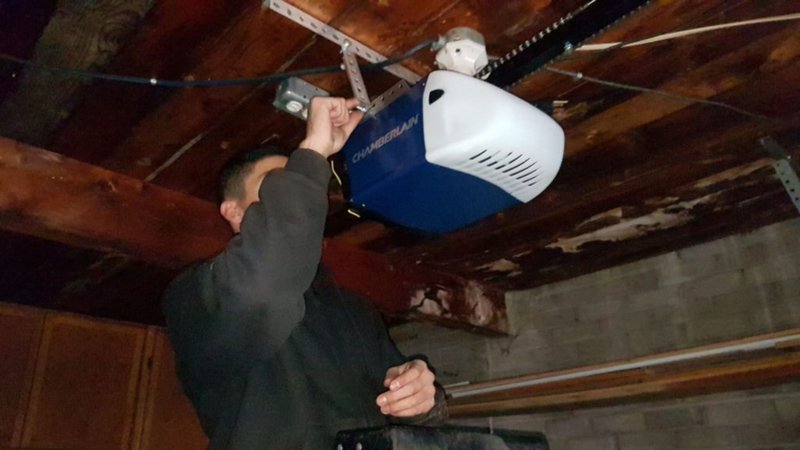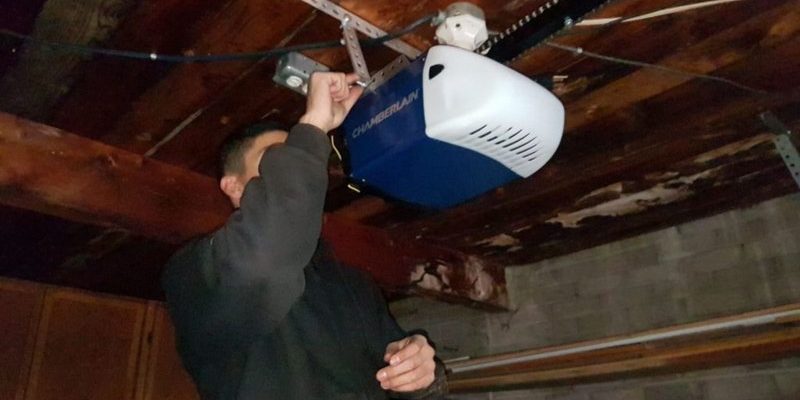
In today’s world, most garage door openers come with a remote control, and brands like Chamberlain, LiftMaster, and Genie are well-known. Each model carries its quirks, but they generally have similar components that can lead to excess noise. Let me explain the common causes of these sounds and how we can troubleshoot them together. You might be surprised at how easily some of these issues can be fixed!
Understanding Your Garage Door Opener
Before diving into troubleshooting, it’s essential to understand your garage door opener’s basic workings. Most openers consist of a motor, rails, and pulleys. When you press the button, a signal communicates from the remote to the opener, activating the motor to move the door using those rails and pulleys. Think of it like a well-orchestrated dance—if one dancer missteps, the whole performance can be off.
Understanding these components not only helps you appreciate how your opener functions but also makes troubleshooting much simpler. When it starts making noise, there’s usually a specific culprit behind it, and knowing what parts are involved can guide you through finding a solution.
Common Causes of Noisy Garage Door Openers
Many factors can contribute to a noisy garage door opener. Here are some of the most frequent issues:
- Lack of Lubrication: Over time, the turning gears and guides can become dry. Think of it like a squeaky door hinge; a little oil goes a long way!
- Loosening Hardware: If nuts and bolts are loose, it can create rattling noises as the door operates. It’s kind of like wearing a bracelet that keeps falling off—annoying and not how it’s supposed to work!
- Worn Components: Parts like rollers, belts, and chains can wear down over time. If they’ve seen better days, they might start to groan and creak.
Keeping these common problems in mind can help you diagnose the issue when you hear an unwanted cacophony.
Inspecting Your Garage Door Opener
When troubleshooting, start by conducting a thorough inspection. Grab a flashlight and carefully check your garage door opener, focusing on any visible issues you can spot. Look for:
- Loose Bolts and Nuts: Take a moment to tighten any hardware you see. This can make a noticeable difference right away.
- Alignment Issues: Your door should be straight when closing. If it’s off-kilter, this could cause excess noise as it struggles to operate.
- Wear and Tear: Examine the rollers and hinges for signs of wear. If they’re cracked or chipped, it’s time for a replacement.
By spending a little time inspecting your opener, you might uncover some simple fixes that leave it running quiet and smooth.
Lubricating Your Garage Door Opener
One of the most straightforward ways to combat noise is through lubrication. Here’s how to do it:
1. Choose the Right Lubricant: Go for a silicone-based lubricant or garage door lubricant—avoid oil-based ones, as these can attract dirt.
2. Clean the Tracks and Rollers: Use a damp cloth to wipe off any dust or grime.
3. Apply Lubricant: Spray a light coating on the rollers, hinges, and tracks. Don’t drown them in lubricant—just a little goes a long way.
Honestly, this could be the fix you need! Regular lubrication can keep everything running smoothly and quietly.
Adjusting the Opener’s Settings
Garage door openers often come with adjustment settings for sensitivity and force. If these settings are off, the opener may struggle more than it has to, leading to noise. Here’s how to check:
1. Locate the Adjustment Screws: Most openers have two screws for adjustment—one for force and one for sensitivity. Consult your manual for exact locations and instructions.
2. Make Adjustments: Use a screwdriver to turn the screws, making small adjustments. Test the door after each tweak until it operates more quietly.
3. Observe the Changes: Pay attention to how it moves; if it continues making noise, you might need to check with a professional.
Making these adjustments can help your opener work with less effort and, as a result, reduce the noise it makes.
Replacing Worn-Out Components
Sometimes, noise is a sign it’s time to replace some parts. If you’ve inspected and lubricated but still hear racket, it may be time to take a look at those components:
- Rollers: Consider replacing any plastic rollers with nylon ones—they tend to be quieter.
- Belt or Chain: If they sound like they’re grinding, replacing them can make your opener run more smoothly.
- Hinges: Don’t overlook the hinges; replacing worn ones could make a world of difference.
Remember, maintaining your opener isn’t just about quiet operation; it’ll also help extend its lifespan.
Checking the Garage Door Alignment
Sometimes the door itself can contribute to excess noise. If it’s not aligned correctly, the opener has to work harder. Here’s how to check for alignment:
1. Visual Inspection: Close the door and see if it’s sitting flush against the ground. If you notice gaps, it might be misaligned.
2. Adjust the Tracks: You can often realign the tracks by loosening the bolts and repositioning them slightly.
3. Test the Movement: Once adjusted, open and close the door to ensure it moves smoothly and quietly.
Let’s be honest; regularly checking alignment is a good practice that can prevent noise and prolong the life of your opener.
Resetting Your Garage Door Opener
If all else fails, it may be time to reset your opener. A reset can often resolve underlying issues that cause noise. Here’s how to do this:
1. Locate the Reset Button: Depending on your model, find the reset button on the unit.
2. Press and Hold: Press and hold the button until the light blinks.
3. Re-pair Remotes: After resetting, you might need to re-sync your remotes to the opener.
Here’s the thing: resetting can resolve glitches that might be contributing to noise issues and is worth trying.
Consulting a Professional
If you’ve tried adjusting, lubricating, and inspecting, but the noise persists, it may be time to call in the experts. Sometimes, a professional can spot problems you may have missed. Here’s when to reach out:
- Your adjustments don’t make a difference
- You notice serious wear on components, such as liens or chains
- You’re uncomfortable working with electrical components
Trust me, it’s worth it to have a pro take a look if you’re unsure.
Maintaining a Quiet Garage Door Opener
So, after you’ve tackled the problems, how do you keep your garage door opener functioning quietly? Here are some quick tips to maintain the peace:
– Regular Lubrication: Check lubrication two to three times a year.
– Inspect Periodically: Keep an eye on hardware for any loosening.
– Watch Out for Wear: If you notice any strange sounds beginning again, act quickly!
Incorporating these practices into your routine will help keep your garage door opener smooth and serene.
Troubleshooting a garage door opener that’s not quiet enough might seem overwhelming at first. However, with a bit of patience and the right approach, you can often figure out the problem without breaking a sweat. Remember the power of lubrication, inspection, and adjustments, and don’t hesitate to reach for professional help if needed. Your garage door should be a seamless part of your daily routine, not a source of stress.
With these tips, you’ll keep your garage door running smoothly—and quietly—so you can get back to enjoying that peaceful home environment.
